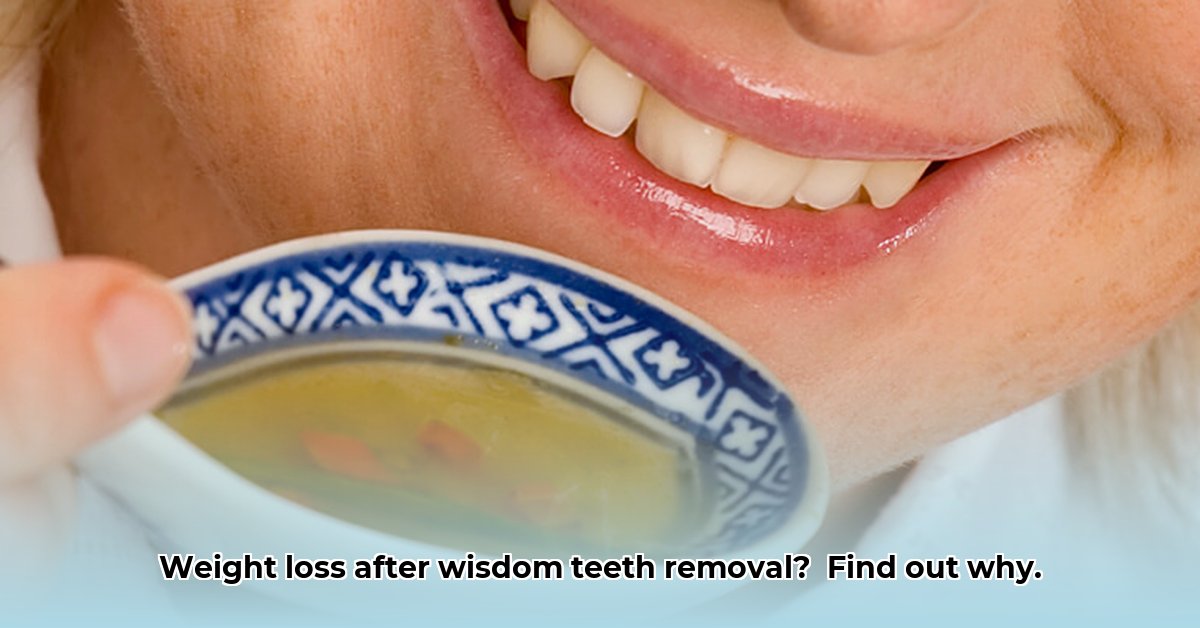
It's common to experience some weight fluctuation after wisdom teeth removal. This guide will explain why this happens, what to expect, and how to support your body during recovery. Rest assured, most weight changes are temporary and easily managed.
Why Weight Changes Occur After Wisdom Teeth Removal
Several factors contribute to potential weight loss following wisdom tooth extraction. Primarily, post-surgical pain significantly reduces appetite. Chewing becomes difficult, limiting food choices to soft, often lower-calorie options. Additionally, prescribed pain medication can sometimes cause nausea or appetite suppression. Finally, your body prioritizes healing, potentially increasing metabolic rate and drawing energy reserves.
What to Expect: Realistic Weight Changes
Predicting the exact amount of weight loss is impossible, as it varies greatly depending on individual factors like metabolism, pain tolerance, and pre-surgery diet. However, you might experience a small decrease (a pound or two, or possibly more in some cases) due to reduced food intake. Remember, the focus should be on healing, not the scale. Minor fluctuations are typically temporary. Many people see no weight change at all.
Your Actionable Recovery Plan: Steps for Healthy Weight Management
Follow these steps to optimize your recovery and nutrition:
Dietary Recommendations: Prioritize nutrient-dense, soft foods. Excellent choices include creamy soups, yogurt, applesauce, mashed sweet potatoes, smoothies, pudding, scrambled eggs, and well-cooked, soft vegetables. Gradually reintroduce solid foods as tolerated.
Hydration is Crucial: Drink plenty of fluids (water, broth, diluted juice) throughout the day to support healing and prevent dehydration, which can exacerbate discomfort.
Medication Management: Take prescribed pain relievers as instructed. If you experience significant appetite suppression or nausea, consult your dentist or doctor for alternative options.
Weight Monitoring: Avoid daily weighing. Focus on feeling better. Contact your dentist or doctor if you notice significant or unexpected weight loss accompanied by other symptoms (e.g., persistent pain, fever).
Prioritize Rest and Overall Wellbeing: Adequate rest is vital for healing. Follow your dentist’s postoperative instructions and avoid strenuous activities.
When to Seek Medical Attention
Contact your dentist or doctor immediately if you experience:
- Significant and unexpected weight loss (more than 5% of your body weight).
- Severe, persistent pain unresponsive to medication.
- Excessive bleeding or swelling at the surgical site.
- Fever or signs of infection (pus, redness, increased pain).
Conclusion: Recovering Your Health and Usual Weight
Remember, minor weight fluctuations after wisdom tooth extraction are often temporary. By prioritizing proper nutrition, hydration, and rest, you'll support your body's natural healing processes and return to your usual weight. Focus on feeling better overall. If concerning symptoms arise, seeking professional advice is essential.